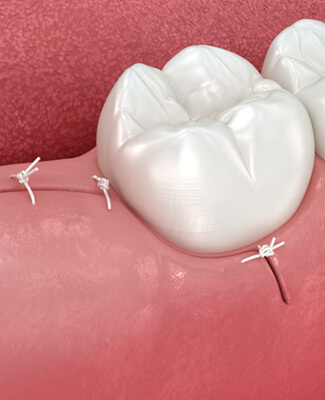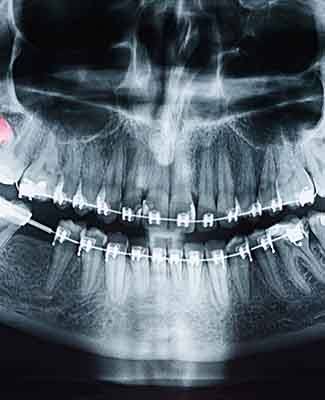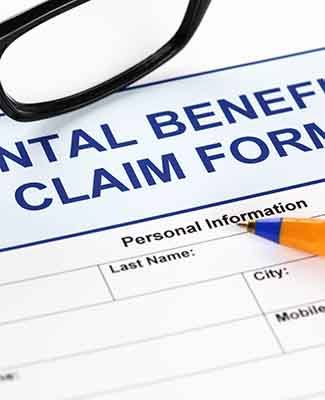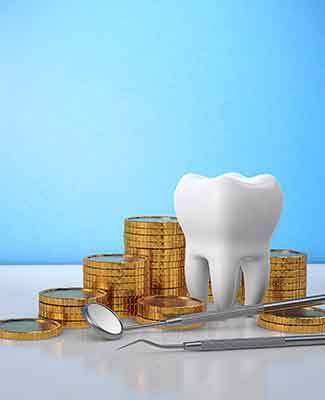Wisdom Tooth Extractions – Federal Way, WA
Free Yourself of Teeth You Don’t Need
Wisdom teeth are an unpleasant rite of passage. Most people will have to deal with them at some point in their life and will often struggle with the unpleasantries that they entail. Impactions, misalignment, and even infections can all come with the arrival of wisdom teeth.
Thankfully, wisdom teeth extractions are no problem for the team here at Drew Beaty DDS. If you’re near Federal Way, WA, we’ll be happy to free you of teeth you don’t need! Make an appointment with us and we’ll be happy to bring you in for a consultation.
Why Choose Drew Beaty DDS for Wisdom Tooth Extractions?
- Comfortable Office and Friendly Dental Team
- Sedation Available to Maximize Your Comfort
- Experienced Dentists Who Will Personalize Your Care
What Are Wisdom Teeth?

Wisdom teeth are the last molars to arrive, sprouting in the very back of the mouth sometime in late adulthood. It’s thought that they’re a relic from a period of human history when our ancestors lost many of their teeth before their twenties; however, this is no longer the case for most people.
Most people are born with four wisdom teeth, though some people are born with three, two, one, or none at all.
Why Do Wisdom Teeth Need to Be Removed?

Wisdom teeth themselves aren’t necessarily a problem—they’re a normal molar, just like any other. However, their late arrival often causes problems for patients. Wisdom teeth often lead to overcrowding, and they can even become impacted or fail to emerge completely. These teeth also tend to be difficult to clean, which means that they’re unusually susceptible to infection.
Some people have their wisdom teeth come in without any issues, particularly if they had bicuspids removed before orthodontic treatment. However, if you notice any of the above issues, taking yours out is probably a good idea.
What to Expect From the Wisdom Teeth Procedure

What wisdom tooth extractions entail depends on the nature of teeth themselves. If they’ve mostly emerged, the process will be similar to any other tooth extraction. This will involve numbing the tooth completely, then using a tool called an elevator to lift the tooth from the socket before removing it with forceps.
If the wisdom teeth are impacted, surgical removal may be necessary. Depending on its complexity, we can either complete this in-house or refer you to an external specialist.
Recovering From Wisdom Teeth Extraction

After your wisdom tooth has been removed, it’s common to be pretty sore for a few days. This may be accompanied by facial swelling and some bleeding, though these should fade fairly quickly.
While you’re healing, it’s important to do what you can not to disturb the wound. Many patients adopt a soft food diet, which reduces the risks associated with excessive chewing. It’s also important not to drink anything through a straw or spit excessively, as this can lead to dry socket.
Take any pain medications you’ve been prescribed precisely as directed, and rely on over-the-counter pain medicine when necessary. If you run into any issues, don’t hesitate to contact us.
Wisdom tooth extractions can be intimidating, but we can assure you that the treatment is a breeze. If you need one, make an appointment with us—you’ll be glad you did!
Understanding the Cost of Wisdom Tooth Extractions

Now that you know more about the process of having your wisdom teeth extracted in Federal Way, you may be curious about how much this procedure costs. There’s no one price because everyone’s circumstances are unique, so it varies from person to person. Our team is happy to provide a detailed estimate once you’ve had a consultation appointment with one of our dentists.
In the meantime, continue reading below to learn more about what impacts the final amount due, and feel free to contact us with further questions or to schedule an appointment.
Factors That Can Impact the Cost of Wisdom Tooth Extractions

Several different things can influence the total owed for your wisdom tooth extractions, including:
- The number of teeth being removed. Some people have all four wisdom teeth, while others are only born with one, two, or three. Each tooth extracted has associated fees.
- The type of extraction. If your last molar has fully erupted from your gumline, our team can potentially extract it with forceps. If it’s impacted or hasn’t fully emerged above your gums, then you might require a surgical extraction that comes with additional costs.
- The kind of anesthesia/sedation involved. Those having surgical extractions will likely be given additional sedatives or anesthesia, which increases the total amount due.
- Who performs the extraction? We can handle many cases onsite, but if your situation is too complex for us to complete the procedure successfully in the office, we may need to refer you to a specialist, who you will pay for separately.
Does Dental Insurance Cover Wisdom Tooth Extractions?

If you’re worried about paying for your wisdom tooth extractions and have dental insurance, you may be in luck. Many (though not all) policies have provisions for at least a portion of the cost of wisdom tooth extractions. There may be restrictions that apply, however, so be sure to check the details of your plan to verify what’s covered. For example, you’ll have to meet your annual deductible before benefits kick in, and you may also have to wait a certain length of time before special procedures can be performed. Even then, there may be a limit on how many teeth can be treated.
If you’re unsure what your insurance includes, don’t hesitate to ask our friendly office staff for help. They’re familiar with many providers and are happy to help you maximize your benefits.
How to Make Wisdom Tooth Extractions Affordable

We understand that not everyone can pay for a regular dental insurance policy, and we don’t want your budget to hold you back from getting the treatments you need. That’s why we offer the following options to help you pay for your wisdom tooth extractions:
Wisdom Tooth Extraction FAQs
Is There an Alternative to a Tooth Extraction?
Although you may not be experiencing any pain or sensitivity from your wisdom teeth, if Dr. Beaty is recommending extraction, it is likely for a very important reason.
Wisdom teeth can often become problematic even if they erupt normally and are not impacted. Issues such as crowding and difficulty brushing and flossing can cause future jaw pain, alignment problems, and increase your risk of cavities and gum disease.
Thus, if a tooth extraction is needed to restore your smile and bite, you can rest assured knowing this is the best way to keep your smile strong, healthy, and pain-free.
Can I Smoke After Getting a Tooth Extracted?
Because tobacco products like cigars, cigarettes, and even e-cigarettes or vapes can delay healing, you cannot smoke immediately following a wisdom tooth extraction.
Furthermore, it’s recommended that you wait to smoke or consume tobacco products for at least five days following your procedure. If possible, you should them for two weeks.
If you have struggled to quit in the past, feel free to speak to Dr. Beaty. He’s not interested in passing judgement, he just wants to be able to help you prepare for your recovery in advance!
What Can I Do to Speed Up the Healing Time?
When it comes to healing from a wisdom tooth extraction, focusing on resting is of the utmost importance. Never exercise or do anything strenuous for at least 24 hours after the procedure and try your best to keep your head elevated.
Keep the gauze in place in your mouth as instructed by Dr. Beaty. This will help a clot form. Neer touch the wound with your tongue or hands.
Avoid anything that could cause irritation, such as mouthwash or acidic foods.
You can do your part to prevent painful dry socket (which can drastically slow the healing process) by staying hydrated, never using a straw, and not spitting.
To reduce puffiness, place an icepack or cold compress against the outside of your cheek.
Only take the pain medication recommended by Dr. Beaty, exactly as prescribed.
What Risks Are Involved with Tooth Extractions?
The good news is that tooth extractions are considered extremely safe. With that being said, any dental procedure does come with some risks. With tooth extractions, the primary risk is infection, which can spread throughout your body if it is not handled quickly.
Another risk is dry socket, a painful condition that can significantly delay the recovery process.
To help prevent these conditions from occurring, Dr. Beaty will provide you with an extensive list of aftercare instructions as well as a list of common symptoms of infection to look out for.
